September 30, 2021 | Human Resources, Employee Training
How to Implement a Manufacturing Apprenticeship Program
Apprenticeships have a proven track record of producing strong results for both employers and workers. Apprenticeship programs offer access to hundreds of occupations, in high-growth and emerging industries with an average annual starting salary of $72k for employees who complete a program and a 92% retention rate for employers.
Quick Links:
- The Difference Between Manufacturing Apprenticeship and an Internship
- How Can Apprenticeship Programs Impact a Company's Retention and Employee Engagement?
- Common Objections to Starting Apprenticeship Programs
- Resources for Starting a Manufacturing Apprenticeship Program
The Differences Between a Manufacturing Apprenticeship and an Internship
Manufacturing apprenticeships are, essentially, a quality workforce development solution. If you have a need for talent, an apprenticeship is a framework that can be built around a training program that can offer you the talent you need.
Apprenticeships typically have five hallmarks:
- Employment
- Related instruction
- On-the-job training
- Mentoring
- Scheduled wage increases throughout the program
A manufacturing apprenticeship can take on average one to four years to complete, and often leads to gaining experience that ties directly into a full-time job. Apprenticeships include a structured training plan, with a focus on mastering specific skills an employer needs to fill an occupation within their organization.
On the other hand, internships can’t guarantee that foot in the door. Not to mention, they’re often unpaid and don’t always entail a mentorship either. Internships aren’t structured and often focus on entry-level general work experience.
When it comes to an internship, most people either do it for a semester or summer and then move on to the next one or get hired full-time; with an apprenticeship, it can take years to complete and requires a full-time commitment.
How Can Apprenticeship Programs Impact a Company's Retention and Employee Engagement?

In 2020, more than 221,000 individuals nationwide entered the apprenticeship system. This population of nearly one quarter of a million people impacts a company’s retention rate in the following manners:
Apprenticeship Programs Supplement Recruitment Efforts
If your organization notices fewer and fewer people looking to become entry-level workers or technicians, then that might be an indicator they don’t even recognize the value of the role they could play in your organization.
Apprenticeships amplify this awareness and provide a guided route to success in your manufacturing operation and the industry as a whole. Apprenticeships provide a format in which to go out and recruit more aggressively. They also enable access to niche roles, and various skill sets for people that otherwise wouldn't have access.
Programs Accelerate Training and Certification Status
The other thing with, virtually, every industry, the explosion of technology has required that our workers and technicians learn a lot more skills a lot faster. Upon reaching what is called a “journey-level” or expert level in four years, the apprentice is fully qualified.
The apprenticeship training, both in the classroom and on the job, allows manufacturing organizations to really accelerate work-related education.
Credentials Are Portable Through U.S. DOL Registration
One of the great things about registering your apprenticeship is that people get a credential that's portable. Meaning if your program is registered with the U.S. DOL, then that certificate is a benefit to the apprentice because their experience is verified by the Federal Government.
Plus, oftentimes, registered programs align with federal and state grant funding to help offset or provide incentives to the employer, which makes these programs more affordable for manufacturing organizations.
Mentors Foster Engagement and Support
Retention typically comes with the ability for someone to see they have a career path and can develop. That’s why mentoring and on-the-job learning are such critical parts of apprenticeship.
When an established employee is able to directly connect with an apprentice who is further empowered with hands-on experience, those connections demonstrate your manufacturing organization’s commitment to their success.
Common Objections to Starting Apprenticeships Programs
There are several reasons why organizations hesitate to implement manufacturing apprenticeship programs. Some of the most common reasons include:
“Apprenticeship Is Only for Traditional Trades”
While the perception might be that apprenticing is only for traditional, skill-based trades, that’s not the case. There are modern, non-traditional apprenticeships out there that are in the software and IT space.
In fact, apprenticeship programs can span almost any job or role as long as the occupation is defined, and somebody's interested in implementing them.
“My Manufacturing Organization Is Too Small to Start an Apprenticeship Program”
The framework used for a program can be scaled down to just one or two apprentices for your manufacturing organization, no matter the size of your company.
If you want to start an apprenticeship with one person, and you've identified the related instruction, you understand how they're going to get trained on the job, and you have a mentor in place, that's really all you need.
“I Don’t Know Where to Start”
If you're a manufacturing organization that doesn't feel like you have the internal capacity to build an apprenticeship, you aren’t alone! There are resources out there that help you.
For example, there are intermediaries that are focused on specific skill sets that will help you build an apprenticeship and provide the training that you need.
Resources for Starting a Manufacturing Apprenticeship Program

Support for apprenticeships continues to grow — and hybrid programs offering a combination of online learning and in-house training are also picking up steam. If you’re interested in developing an apprenticeship program for your manufacturing business, there are a number of resources available on the U.S. Department of Labor website.
Here, you’ll find the information and building blocks you need to start building your program, including:
- Apprenticeship FAQs, because you’re certain to have questions
- A Quick-Start Toolkit, offering a step-by-step guide to starting an apprenticeship program
- A Federal Resources Playbook, offering an overview of federal programs that are available to support your apprenticeship program
- An Apprenticeship Registration Tool to help you register your program
Apprenticeships have been around for centuries, but temporarily took a backseat to the pursuit of college degrees. Now, however, apprenticeships are making a big comeback—and they’re a win-win for workers and employers alike.
Apprentices learn valuable skills without having to pursue a degree that many can’t afford while employers benefit from increased productivity and retention. If you’re looking to bring new talent to your factory floor, there’s no time like the present — and CMTC can help.
CMTC is a private nonprofit organization that provides technical assistance, workforce development, and consulting services to small- and medium-sized manufacturers throughout the state of California. CMTC's mission is to serve as a trusted advisor, providing solutions that increase the productivity and competitiveness of California's manufacturers.
About the Author
Gregg Profozich
Gregg Profozich is a manufacturing, operations and technology executive who believes that manufacturing is the key creator of wealth in the economy and that a strong manufacturing sector is critical to our nation’s prosperity and security now, and for future generations. Across his 20-year plus career in manufacturing, operations and technology consulting, Mr. Profozich helped manufacturing companies from the Fortune 500 to the small, independents significantly improve their productivity and competitiveness.

